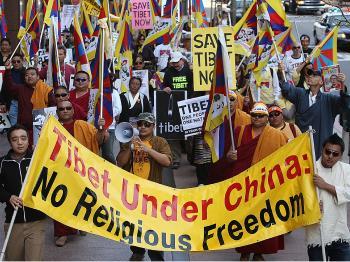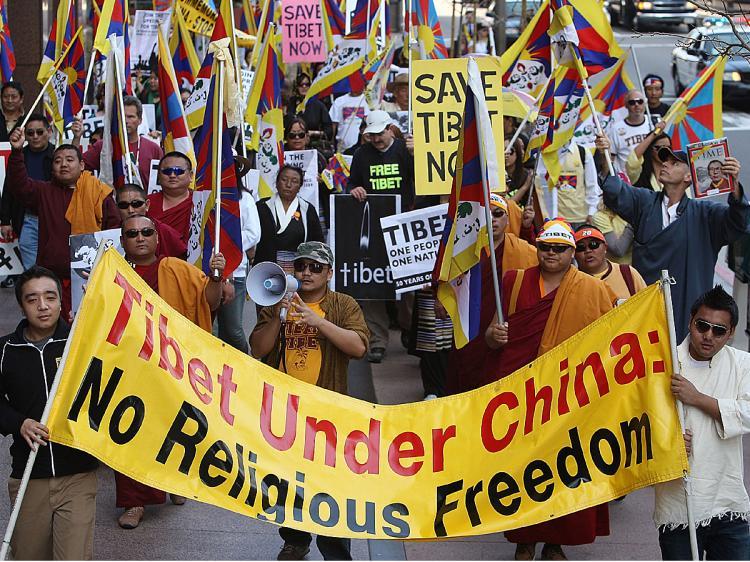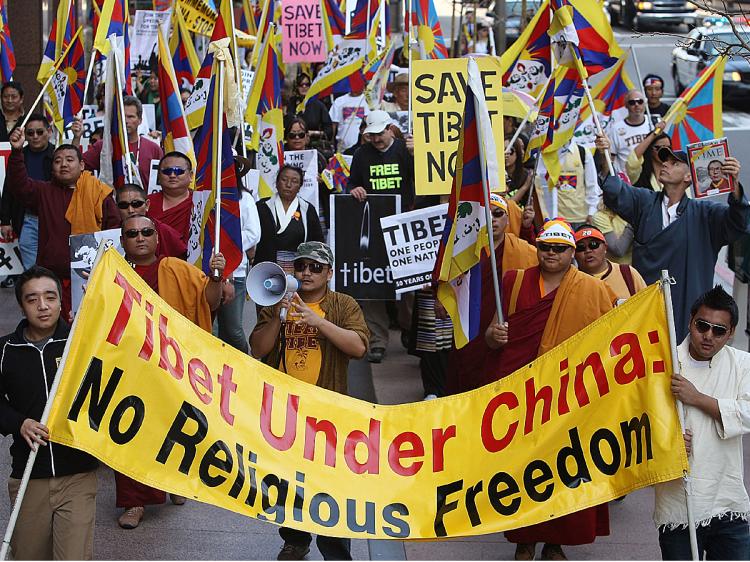On March 10, 1959, the Tibetans rose up to defend their land and spiritual leader, the Dalai Lama, against the aggression of the Chinese regime. As a result, China sent troops to Tibet and the Dalai Lama fled to India in exile. The Chinese regime accused the Dalai Lama and his followers of launching an armed rebellion, whereas the Tibetans stated that it was a movement to resist the Chinese regime.
In the past 50 years, Tibetans continued to clash with the Chinese authorities in Tibet, and more so in the late 1980’s and recent years, and one of them, the unrest in Lhasa on March 14, 2008, especially caught the attention of the world.
On March 10, about 10,000 Tibetan exiles from around the world attended the ceremony in Dharmsala and listened to the Dali Lama’s speech.
The Dalai Lama expressed his anger and said, “These thrust Tibetans into such depths of suffering and hardship that they literally experienced hell on Earth.” Things that are more precious than lives, such as religion, culture, language, and characteristics of the Tibetan people are on the brink of extinction. He again expressed his wish for solving the problems through non-violent means.
On the other hand, while attending a panel discussion with Tibetan delegates in Beijing on March 9, Chinese regime leader Hu Jintao ordered a solid “Great Wall” against Tibetan separatism.
Many international media reported that at least 50 Tibetans planned on holding a hunger strike for 50 hours. About 5,000 to 10,000 Tibetan exiles also staged a protest rally in New Delhi.
Heavy Troops in Tibet
China has intensified security in all Tibetan areas in China. Hong Kong’s Ming Pao newspaper cited the former Political Commissioner of China’s Armed Police Force, Sui Mingtai, as saying that the military had mobilized an extra tens of thousands of soldiers in the peripheral areas to ensure the security.
TV stations in Hong Kong have shown video clips of unusual tension appeared in Kangding City in the Ganzi Autonomous Prefecture, Sichuan Province, with heavily armed military police patrolling the streets with riot shields, batons, and helmets.
Armored Cars in the Streets of Lhasa
There is also extreme tension in Lhasa, Tibet. Hong Kong’s Apple Daily quoted a local hotel worker as saying that there were armed police and soldiers patrolling around the clock, and that residents had to carry their ID’s with them when going out because police constantly stopped people for interrogation.
A local resident commented on the armored cars’ presence on the street, “Now there are armored vehicles circling around on the street every now and then. In particular, there are people on duty in sensitive areas.”
Many international media and human rights organizations called for the Chinese regime to stop harassing journalists after about a dozen foreign reporters were stopped or even detained by the Chinese regime for reporting incidents happening in Tibet.






